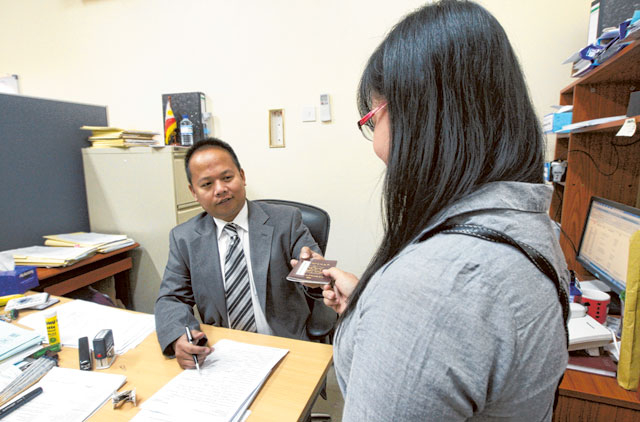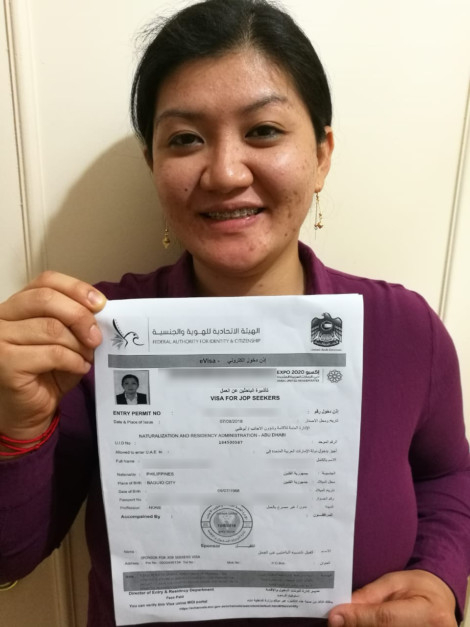Abu Dhabi: Filipina expatriate Veronica Taruc is making the most out of her “second chance” in the UAE. The amnesty grantee is confident she’ll land a suitable job, after being granted a six-month jobseeker visa earlier this month.
Taruc, 30, arrived in the UAE on February 22, 2017. She was promised a job at a salon but she ended up working as a maid.
Contract substitution
“I was a victim of illegal recruitment and of contract substitution. Everything promised to me before coming to the UAE was a lie. I worked for two months, but had to leave because of my situation. I went straight to the authorities to file a complaint,” Taruc told Gulf News.
“I never intended to overstay my visa. But I had no means to go home. I did not get my salary and was forced to survive on whatever money I could earn by working part-time,” she said.
But life gave a good break to Taruc in August, just as it did to thousands others, when the UAE’s amnesty programme began.
The three-month leniency that runs until October 31 gives people who have overstayed their visa a chance to exit the country without a ban and without having to pay overstay fines. Those who wish to stay may legalise their status by getting a new sponsor.
With help from the Philippine Embassy in Abu Dhabi, Taruc went to Al Shahama and Tasheel to legalise her residency.
Absconding case
“I first went to the embassy to find my passport, as I had an absconding case. I was then asked to go to Tasheel on Muroor Road to present my documents: the visa copy, visa status copy, original passport, and ID photo. They checked everything and asked me to come back after three days,” Taruc said.
Taruc said she was asked to pay Dh81 to apply for a jobseeker’s visa. After three days, she paid Dh640 and was given the jobseeker’s e-visa.
“I couldn’t believe it when I held the document in my hand,” Taruc said, smiling. “Now is my chance to do what I came here for a year ago: to work and support my family. I have a nine-year-old child and a disabled father who depend on me. We pawned our land just so I could come to the UAE to work.”
- Veronica Taruc | Filipina amnesty-seeker
Taruc said she has started sending out her resume and has attended a number of job interviews thanks to Tasheel’s help, as they included her name in the virtual job market list. Her work experience includes physical therapist, massage therapist, and sales executive.
“The officials told me the visa is valid for six months. They stressed I should be able to find employment before it lapses or leave the country before then. There were a number of us who were issued the same visa that day. I am grateful to Rowena Daquipil of the Philippine Embassy for encouraging us and guiding along the way.”
“This new visa is a big opportunity for me and it’s like a lifeline for me and my family.”
Taruc is only one of many Filipino expatriates who applied for a jobseeker’s visa in the capital. Vice Consul Von Ryan Pangwi, head of the Assistance-To-Nationals Section at the Philippine Embassy, said the majority of the people availing of their consular services are amnesty seekers.
“Between 70 and 80 per cent of the current passport applications at the embassy are amnesty-related, particularly by those who wish to apply for a jobseeker’s visa,” Pangwi told Gulf News.
“Those who wish to secure a jobseeker’s visa need a valid passport and visa copy. They are directed to any Tasheel centres to complete the transaction.”










